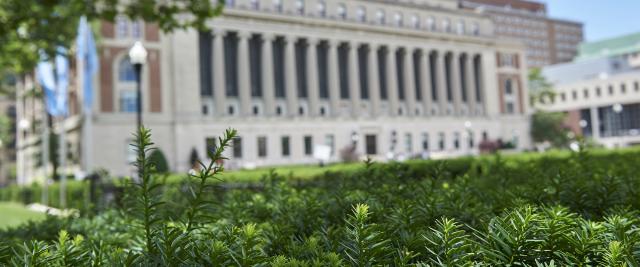The Doctor of the Science of Law (J.S.D.), Columbia Law’s most advanced law degree program, prepares students with exceptional academic aptitude for careers in legal scholarship.
During the fall term, each J.S.D. candidate will determine a study plan and milestones for research and writing deliverables.
The chairperson for each J.S.D. candidate will approve the study plan and determine whether the J.S.D. candidate has met such milestones.
Each J.S.D. candidate’s advisory committee will consist of three full-time faculty members, one of whom will be the candidate’s chairperson. As part of the application process, the J.S.D. candidate identifies, communicates with, and obtains the agreement of Columbia Law professors to serve as chair and members of the advisory committee. Refer to the Application Process section for more information.
J.S.D. candidates typically do not register for other classroom work, though they are free to audit any course or seminar pertinent to their area of study with the instructor’s consent.
In consultation with their chair, candidates will undertake substantial preliminary research to determine the scope of their proposed dissertation. While they must take the initiative in consulting with their advisory committee chair, the advisory committee decides whether, and how many, formal meetings to hold each year. The candidate is encouraged to seek meetings with their advisory committee on a regular basis. At a later stage, the advisory committee will become the examination committee.
